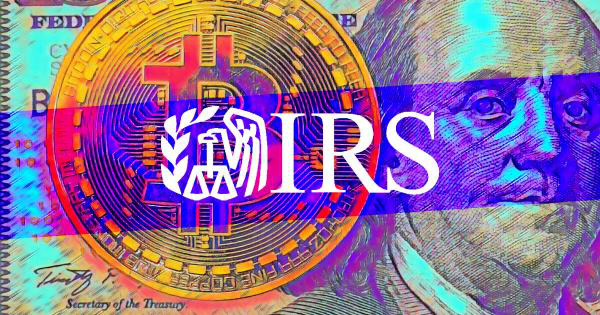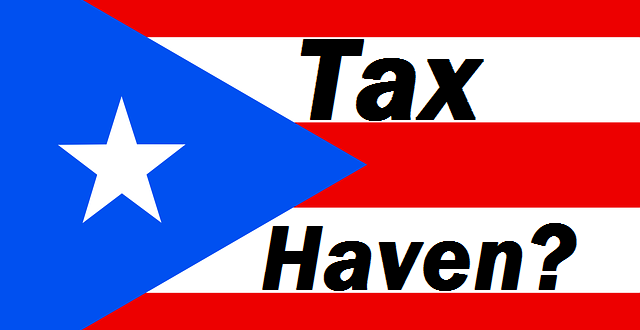
U.S. prosecutors and undercover agents from the Internal Revenue Service (IRS) are investigating wealthy individuals who engage in cryptocurrency trading and fund management.
Some of these individuals are under suspicion for allegedly engaging in the unlawful exploitation of Puerto Rico’s tax incentives for personal gain.
Since the implementation of Puerto Rico’s tax policy in 2012, over 5,000 American have moved to the Island country, latching on to the opportunity to save on federal income tax.
IRS Investigate Tax Evaders
The popularity of the cryptocurrency market has surged in recent years, attracting investors from all walks of life.
However, many crypto traders have been taking advantage of tax benefits offered by Puerto Rico, a U.S. territory, to minimize their tax obligations.
Recent reports from Bloomberg indicate that the Internal Revenue Service (IRS) is intensifying its scrutiny of these traders, aiming to ensure compliance with tax regulations.
IRS probes Puerto Rico tax breaks that lured crypto traders, fund managers https://t.co/9lsd8sVnnl pic.twitter.com/KD1ETWa7hX
— Jean Caragher (@JeanCaragher) July 12, 2023
To this end, U.S. prosecutors and undercover IRS agents are meticulously reviewing records and investigating the matter.
Over the past decade, the financially distressed island has implemented enticing incentives to attract the interest of hedge fund managers, cryptocurrency traders, and other individuals from the U.S.
However, some traders have been taking advantage of the tax benefits offered by Puerto Rico without meeting the legal requirements.
In light of this, investigators are now paying attention to the activities of these traders, as noted by individuals familiar with the situation.
They are concentrating on whether these individuals were dishonest about their time spent on the island and their income source.
This is because individuals must reside on the island for at least 183 days per year to qualify for tax benefits.
You can’t just buy a house in Puerto Rico and claim that it’s now your residence.
In addition, the U.S. authorities are examining the activities of promoters, attorneys, and accountants who promoted the tax haven.
According to undisclosed sources, there are at least two ongoing criminal investigations, one of which involves a U.S. lawyer, that may result in charges being filed soon.
These sources prefer to remain anonymous as the investigations have not been publicly disclosed.
Furthermore, prosecutors are considering charges related to conspiracy and wire fraud.
Many claimed Act 22 would drive investment to Puerto Rico and bring untold benefits.
Unfortunately, it's only worsened inequality & turned PR into a tax haven.
We need a serious analysis from the Federal gov’t on the impact of Act 22 & its ability to help Puerto Ricans. https://t.co/eBxrW2zmP7
— Rep. Nydia Velazquez (@NydiaVelazquez) May 31, 2023
Attorney Carlos Ortiz, specializing in the Foreign Corrupt Practices Act (FCPA), recounted a conversation with a federal prosecutor familiar with the matter during a recent conference in New York.
The federal prosecutor reportedly visited San Juan and emphasized their commitment to pursuing cases, stating, “Look, we’re here, we are looking to make cases.”
The prosecutor further mentioned their collaboration with IRS agents and officials from Puerto Rico.
Puerto Rico’s Tax System Offers a Better Alternative
Puerto Rico shares many similarities with the rest of the United States, including familiar court systems, banking systems, and statutory laws.
However, when it comes to taxes, Puerto Rico follows a system resembling that of the United Kingdom while still maintaining Medicare and Social Security benefits.
According to Section 933 of the Internal Revenue Code (IRC), income sourced in Puerto Rico is exempted from U.S. federal taxes.
In 2012, Puerto Rico introduced two laws, namely Act 20 and Act 22, to try to stimulate economic growth and attract high-net-worth individuals and businesses to the island.

While Acts 20 and 22 specifically pertain to Puerto Rico’s income tax regulations, U.S. citizens who establish genuine residency (thus implicating IRC Section 933) can reap substantial benefits.
The modifications made to these Acts in 2017 have positioned Puerto Rico as an unparalleled tax haven for eligible U.S. citizens seeking tax relief.
The word has spread, and many individuals burdened by taxes consider Puerto Rico a potential solution.
Act 22 offers a 0% tax rate on capital gains for new residents, while Act 20 provides a flat 4% corporate tax rate for businesses engaged in exporting services.
This combination of tax breaks and Puerto Rico’s status as a U.S. territory has attracted many individuals involved in cryptocurrency trading and fund management to relocate to the island.
Americans Find Refuge in Puerto Rico to Escape Tax Burden
Since its new tax policy in 2012, Puerto Rico has seen a significant influx of over 5,000 Americans who have relocated to the country, lured by the benefits it offers, including massive savings on capital gains and federal income tax.
In a recent video, Melissa DaSilva, a social worker, shared her experience of moving to Puerto Rico.
Another Gorgeous morning walk in #PuertoRico getting those #nft creativity juices flowing. #WomenInNFTs #womenincrypto #nftartisit pic.twitter.com/73ogFmF9xn
— Melissa DaSilva, Artist (@RealMsMelissa) February 15, 2022
Previously running a therapy business in Rhode Island, she now operates it remotely from Puerto Rico, enjoying a 25% reduction in her income taxes and embracing her new lifestyle.
The potential for tax savings in the country has also attracted many cryptocurrency investors, such as Michael Terpin, who relocated a few years ago to avoid paying capital gains tax on his Bitcoin to the IRS.
Terpin emphasized that Puerto Rico is the only place where individuals can be exempt from global taxes while retaining their U.S. citizenship.
However, legal experts familiar with the program caution that the residency requirements are stringent and can potentially lead people to engage in fraudulent activities.
To be eligible, individuals must spend at least 183 days per year on the island and establish a “closer connection” to Puerto Rico than to the U.S., establishing the island as their “tax home.”
On July 4, Puerto Rican regulators closed Schiff’s bank due to its failure to meet the minimum capital requirements.
Despite no evidence of crimes, Puerto Rico regulators closed my bank anyway for net capital issues, rather than allow a sale to a highly qualified buyer promising to inject capital far in excess of regulatory minimums. As a result accounts are frozen and customers may lose money.
— Peter Schiff (@PeterSchiff) July 3, 2022
While affluent residents on the island appreciate the tax advantages that have attracted top fund managers and entrepreneurs, the tax program has also faced protests.
Critics label the new wealthy residents as low-tax “colonizers” who have contributed to an increase in the cost of living while doing little to improve the economy of the territory.
Related News
- How to Avoid Crypto Taxes – 10 Ways to Not Pay Taxes on Bitcoin
- 15+ Best Crypto To Buy Now – Which Is The Best Cryptocurrency to Invest in July 2023?
- Proposed US 30% Crypto Mining Tax Reportedly Axed With Debt Ceiling Deal
Wall Street Memes (WSM) - Newest Meme Coin
- Community of 1 Million Followers
- Experienced NFT Project Founders
- Listed On OKX
- Staking Rewards